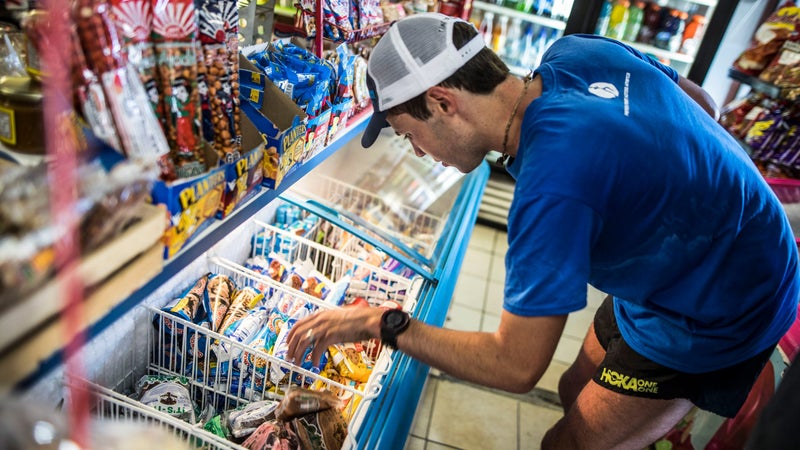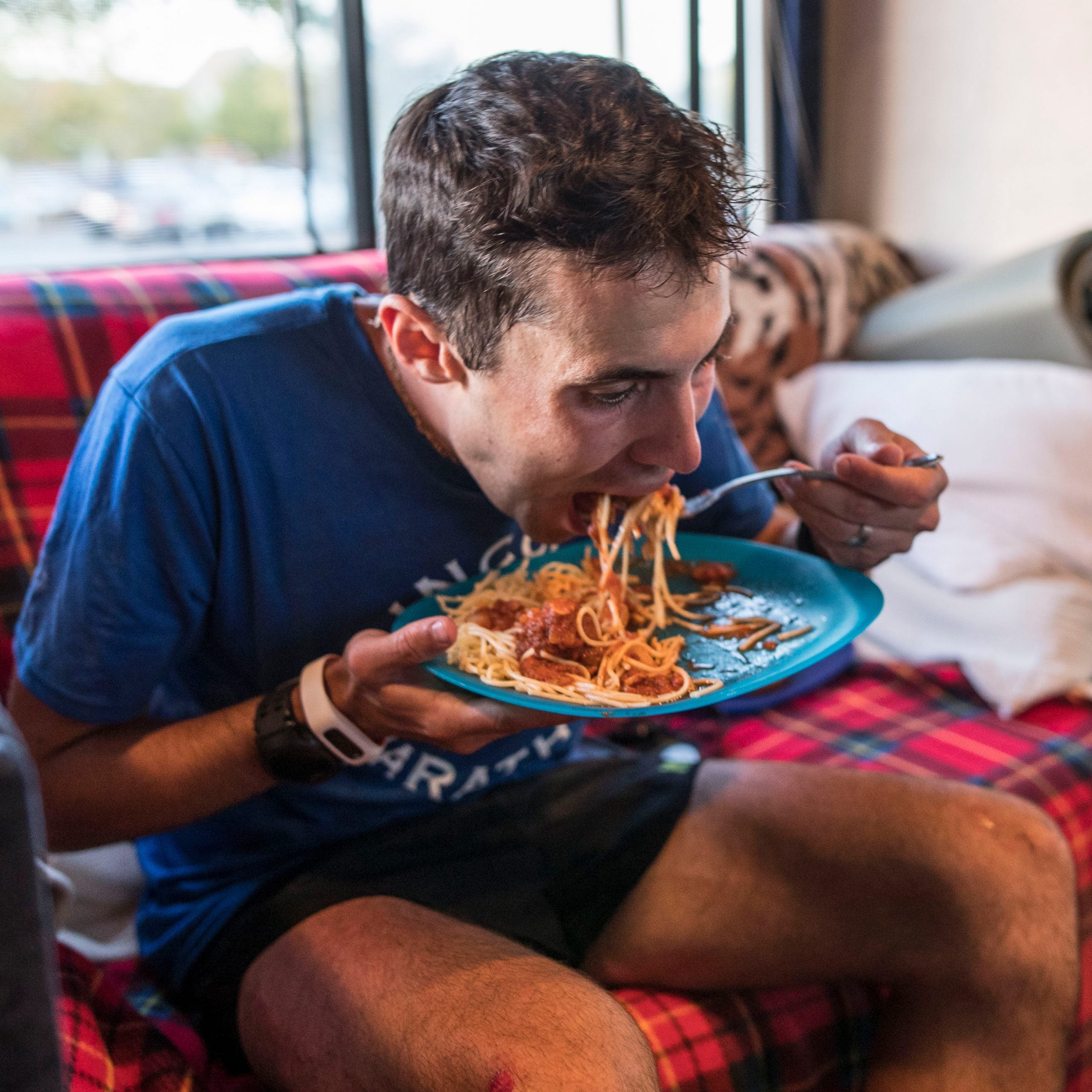In the fall of 2016, Pete Kostelnick, a 29-year-old financial analyst from Lincoln, Nebraska, broke the record for crossing the country on foot, running from San Francisco to New York City in just over 42 days. His tremendous feat required him to average 72 miles per day—or, in other words, two and three-quarter marathons every 24 hours.��
When Kostelnick wasn’t running or sleeping, he was eating. A lot. He estimates that he consumed, on average, between 9,000 and 14,000 calories per day. But what, exactly, does that look like and how did he manage to eat that all in one day? We asked Kostlenick.
Early Breakfast: He woke up at 3:30 a.m., then immediately ate a large bowl of instant oatmeal, a banana, several pieces of toast, and a V8 energy drink.��
Morning Snack: Most days, Kostelnick was on the road and running by 4 a.m. Four or five miles in, Kostelnick would start drinking Gatorade, water, and a soda to help him wake up. “I never did coffee,” he says. “Usually, I would just drink a Diet Coke or Mountain Dew for the caffeine.”
Mid-Morning Breakfast: About an hour—or six miles—into his run, Kostelnick would start munching on Pure Protein bars, a go-to snack during his six weeks. (His preferred flavors: “Anything with peanut butter or caramel.”) These, along with various iterations of trail mix, were his favored on-the-go food source.
Brunch: After about 20 miles, if there was a McDonald’s or a Burger King in the vicinity, Kostelnick’s crew would get him a breakfast sandwich, which he would eat during a “walk break.” Breakfast sandwiches were often paired with Diet Coke, which would “help settle my stomach a little bit, after eating that much all at once,” says Kostelnick.��
���ܲԳ���:��After 40 miles of running, at around 11 a.m., Kostelnick would meet up with the support RV for an extended lunch break that lasted 30 to 40 minutes. These mid-day meals frequently consisted of a foot-long Subway sandwich (usually roast beef with mayo, mustard, oil, vinegar, salt, pepper, and American cheese on white bread) or 10-12 oz of steak and several regular or sweet potatoes made by his crew. To try to avoid a food coma, Kostelnick would wake up with a sugary treat after lunch—toffee was a favorite.��
Running on a full stomach is something that, for better or worse, Kostelnick considers one of his major strengths. “It’s kind of embarrassing, but sometimes during my training runs, I’ll go out on a run and I’ll stop by Chipotle, have a big lunch, and go right back to running,” he says. “That’s something I’ve gotten really good at: I do tend to eat a lot in training, while on the run, because I log so many miles.”

Hydration: Kostelnick says that during the second half of his day, he would start to consume considerably more Gatorade than water, as electrolyte depletion slowly became more of an issue as the temperature rose. The afternoons also spelled a change in his soda-drinking routine: “I would shift more towards sugary sodas [after lunch],” says Kostelnick. “So, rather than drinking Diet Coke for its caffeine like in the mornings, in the afternoon, I would shift toward something like Sprite—no caffeine, but more sugar to give me a boost to get through those last miles.”
Road Snacks: In addition to the ubiquitous protein bars and trail mix, Kostelnick’s afternoon diet included several handfuls of banana chips, sweetened pineapple chunks, and beef jerky.��Throughout the day, his two-person support crew would drive and park the van ahead of Kostelnick, offering him food and drink about every two miles.��
Dinner: On an average day, Kostelnick finished running at around 5:30 p.m. The most common dinner during his six weeks on the road was 10-12 oz steak (cooked medium) smothered in barbecue sauce or ketchup, with regular or sweet potatoes covered in brown sugar and butter. “I pushed the red meat a lot on this run to keep my iron levels up,” says Kostelnick, who has struggled with low hemoglobin counts in the past.
Dessert: After a nightly pint of Ben & Jerry’s ice cream (Karamel Sutra and Chubby Hubby were his favorites), Kostelnick was usually asleep by 7 p.m. He kept his bedside area stocked with protein bars and would eat around four throughout the night when he woke up hungry. Kostelnick estimates that he almost never went more than two hours without eating for the entire six weeks he was on the road.��


